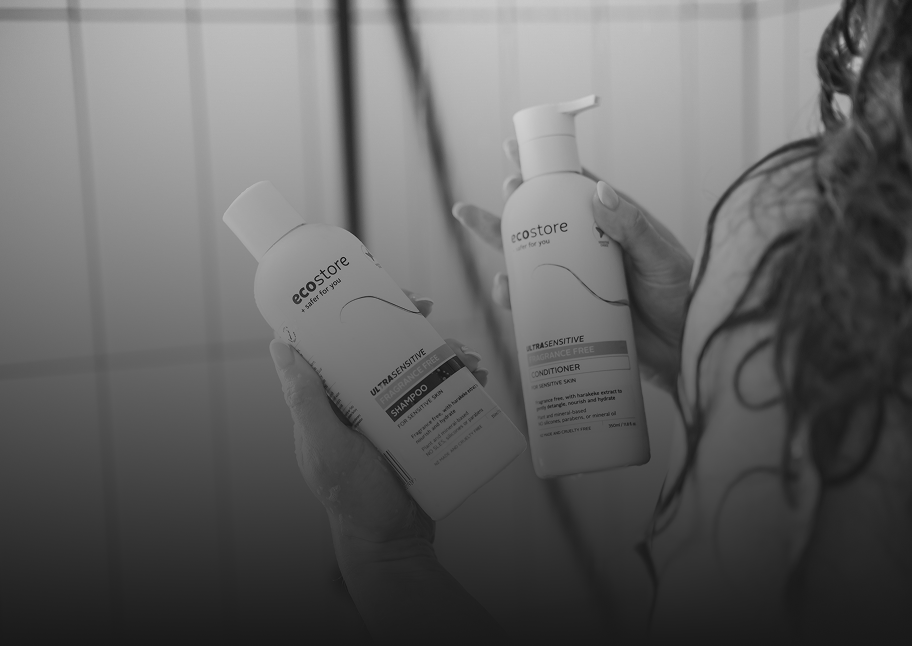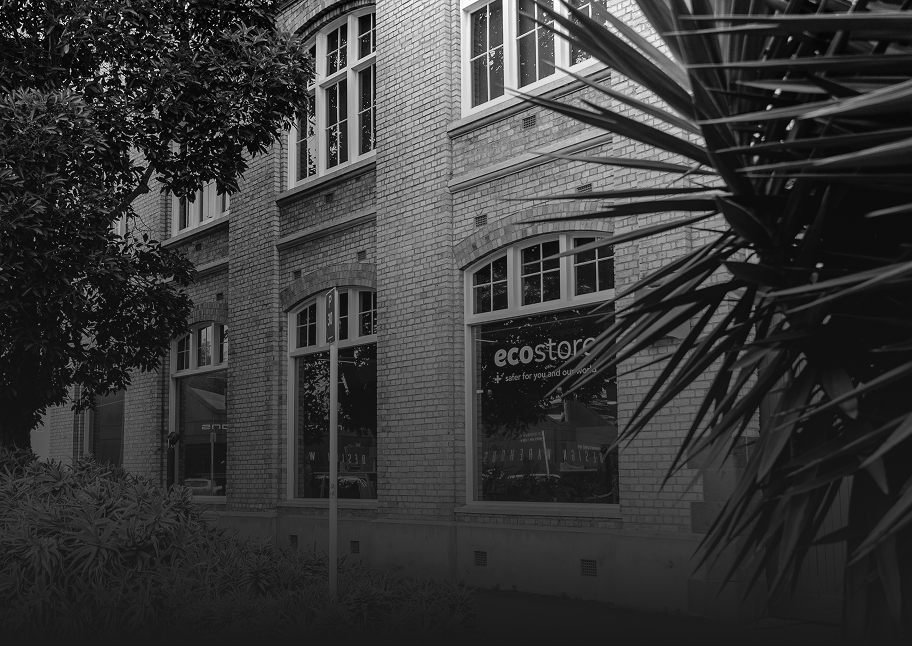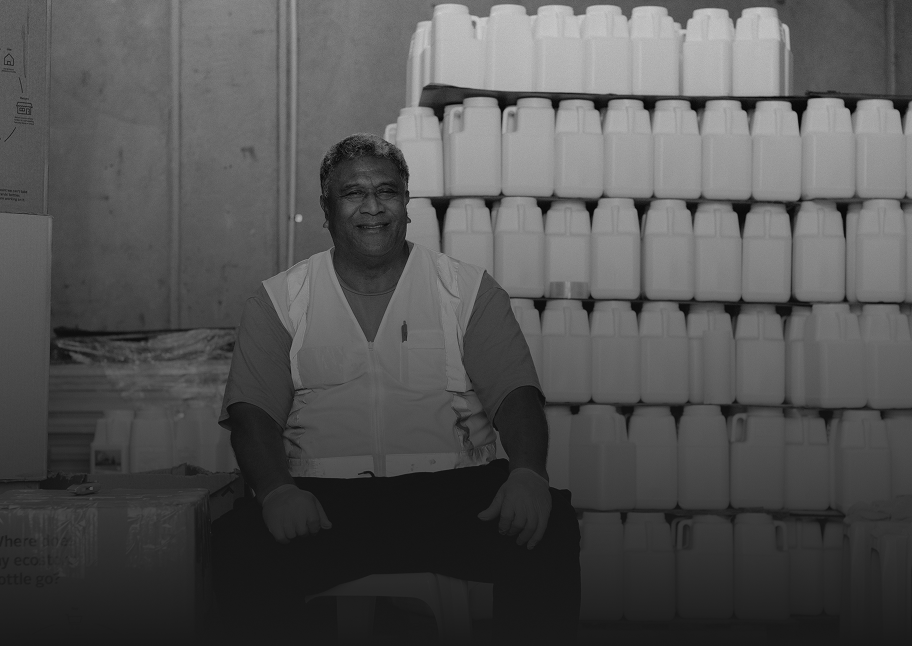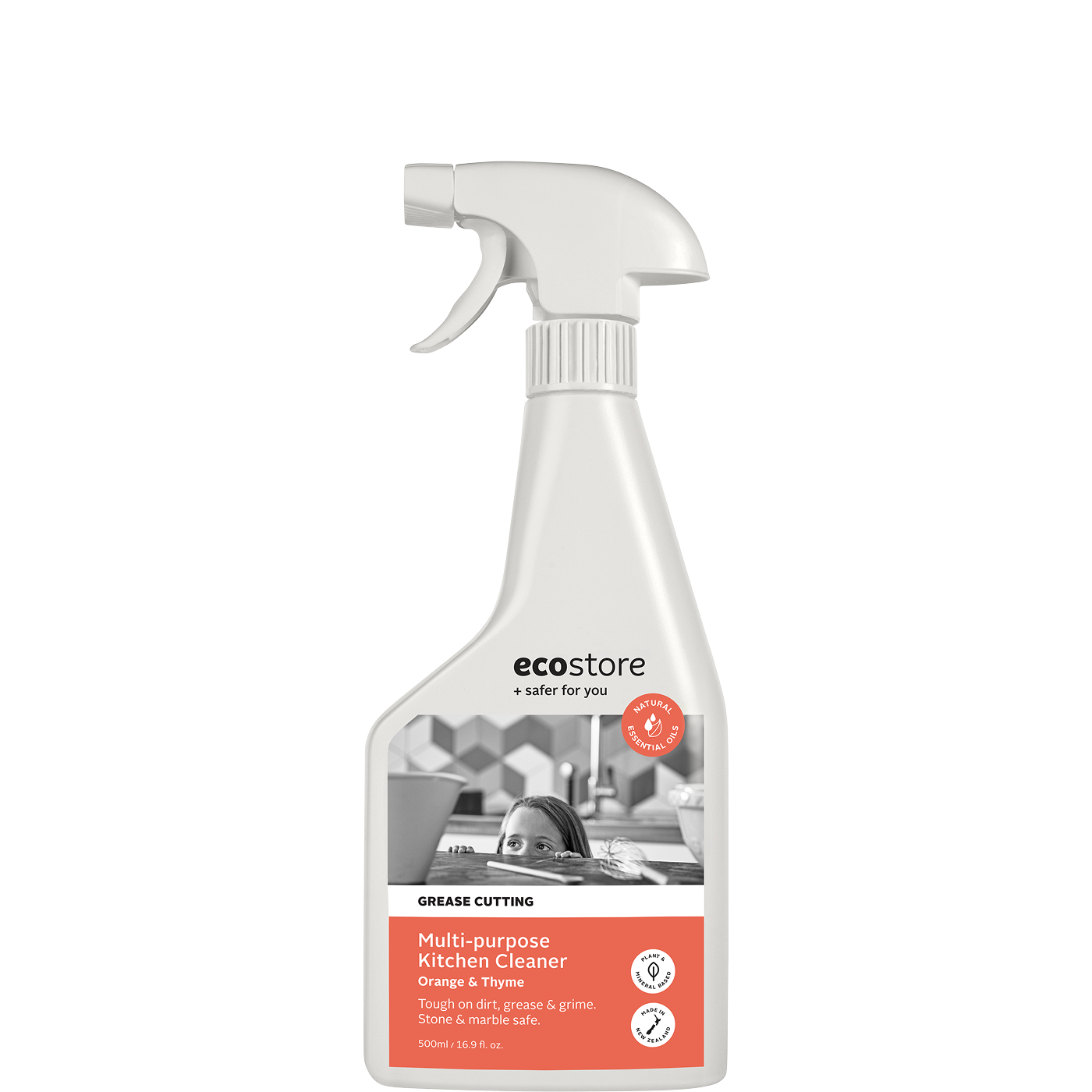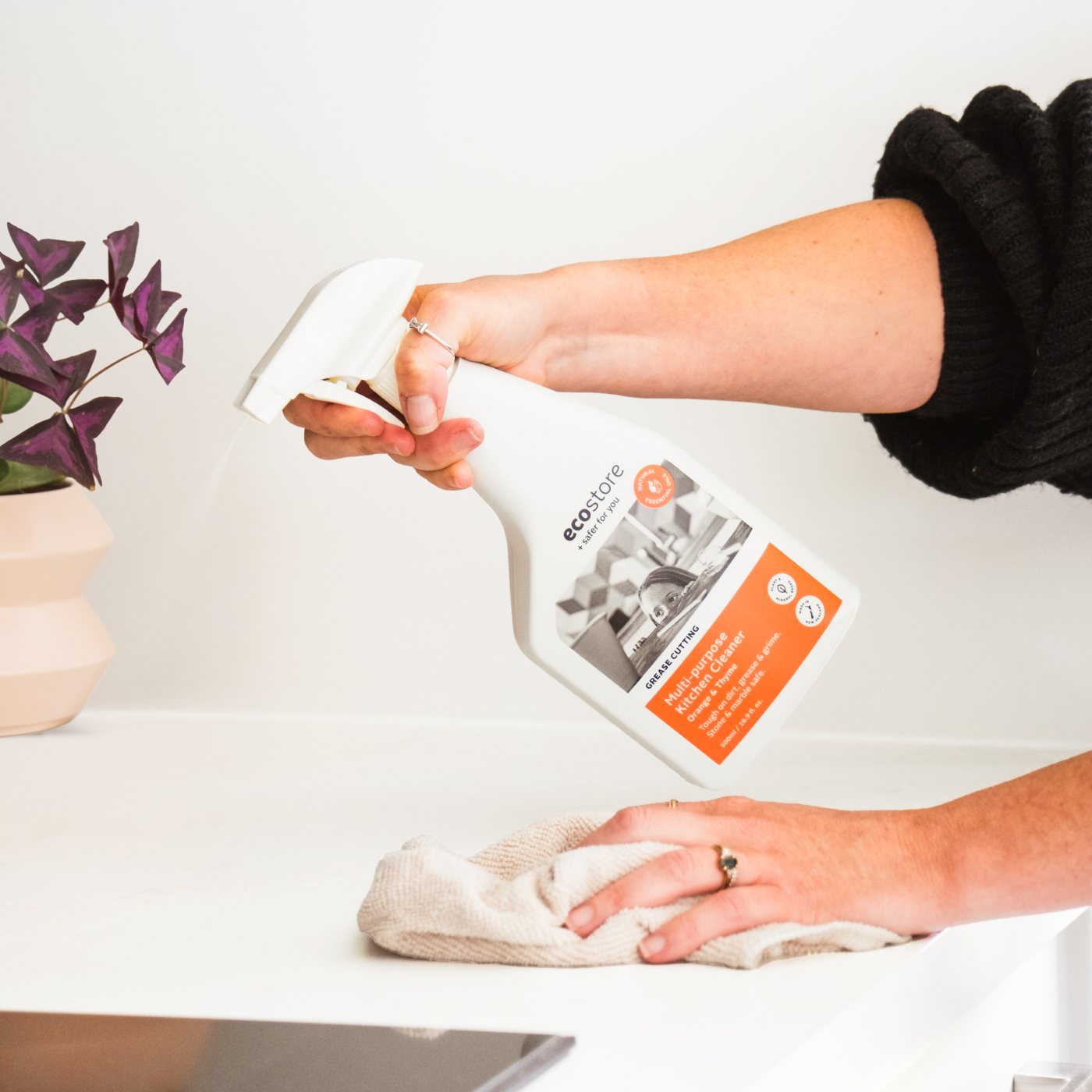Welcome to the latest instalment of meeting the team at ecostore. This week we caught up with our research and development manager, Huia, to talk about how catching and growing his own food has helped him and his family be kinder to the planet.
1. Tell us about yourself.
I've lived in a coastal suburb in Auckland, New Zealand for the past 14 years (ecostore was founded in New Zealand and has its global headquarters in Auckland, and it launched into Australia in 2004). I grew up nearby enjoying the area as our family playground for camping, swimming and fishing. I wake up every day to a view of the sea, and feel lucky that my children are experiencing what I did as a kid.
I commute into Auckland city for work. At ecostore I am responsible for the development of new products and the continuous improvement of our existing range. Ensuring that we source high grade and ethical raw materials from suppliers who are focussed on sustainability is also a large part of my role.
Living out of the city means I can come home and head out for a surf before dinner. I've recently been getting into making my own furniture from recycled timber, and enjoy bringing old pieces back to life by creating something that's both functional and beautiful.
In my spare time I'm also a volunteer firefighter.
2. Can you share with us some of the things you do to live more sustainably?
I provide a lot of my own food through fishing, diving and gardening, which is a really nice feeling. My children love to fish, and when they catch something to have for dinner they feel a real sense of achievement.
My wife Ruth and I look after five large garden beds, filled with fresh vegetables like spinach, cauliflower, tomatoes, potatoes, peas and corn. I have six bokashi bins set up in the garage so no food waste leaves our property and any remains from filleting fish is dug in to the garden.
Ruth is a trustee for the Muriwai Environmental Action Community Trust, and helps to coordinate their events, such as local planting or rubbish pick up days. She's also tapped into the local community of mums and passes on children's clothes to new parents so that they can be re-worn.
Eventually when we replace our roof we would like to install solar water and power. It would be great to see the government put some incentives in place, such as a subsidy, because I think a lot of people would make those changes if it was more affordable.
3. What do you think have been the main benefits of leading a more sustainable lifestyle?
I think that showing my children how to provide their own food helps them to develop an awareness of where what they eat comes from. Hopefully that stimulates a bit of thought around how commercial foods are made and I think a lot of people miss that.
90% of what we eat is vegetable based, so we are saving both money and packaging in growing our own. Composting and recycling also helps to reduce waste, lowering our impact on the environment.
4. Do you have any suggestions for those looking to lighten their environmental footprint?
Grow a garden! Even a small patch can produce a lot, and help to develop a connection to what you consume.
5. What is your favourite ecostore product and why?
The body butter because the whole family uses it, and it's a really nice experience.
Read more

If you, a family member or friend is looking for an alternative to dairy - either because of intolerance, a vegan/vegetarian diet, or just want to try new food or drink options - you may find yours...

Micro-organisms are found all over the body, and in the gut there are up to 2kg of them, made up of more than 3 million genes. The gut microbiome is the total of all these genes. While some gut mi...

